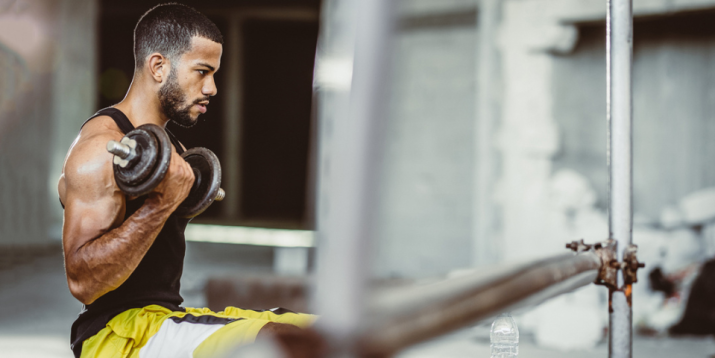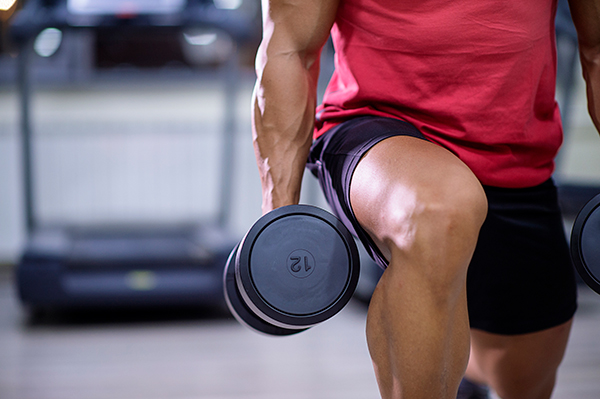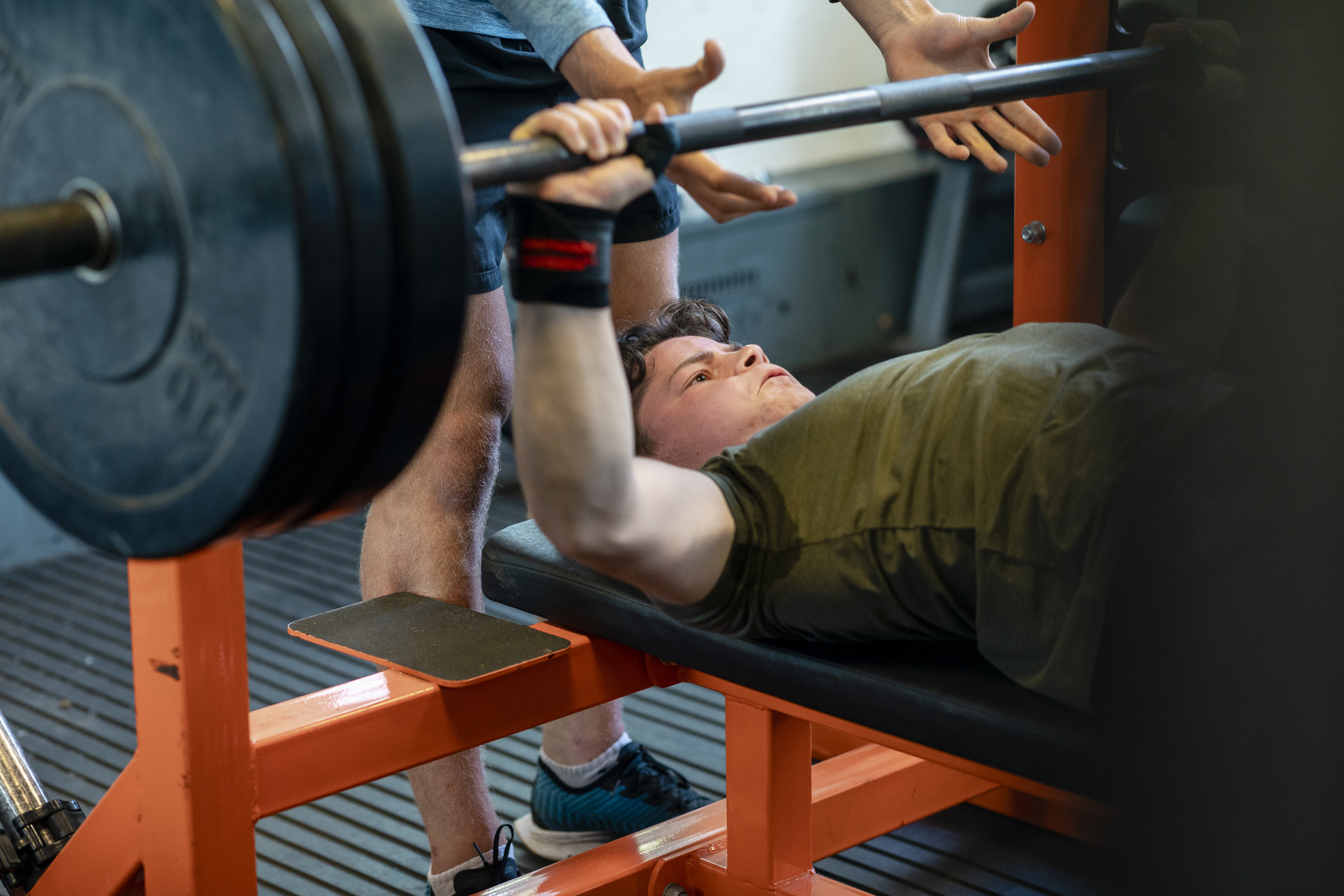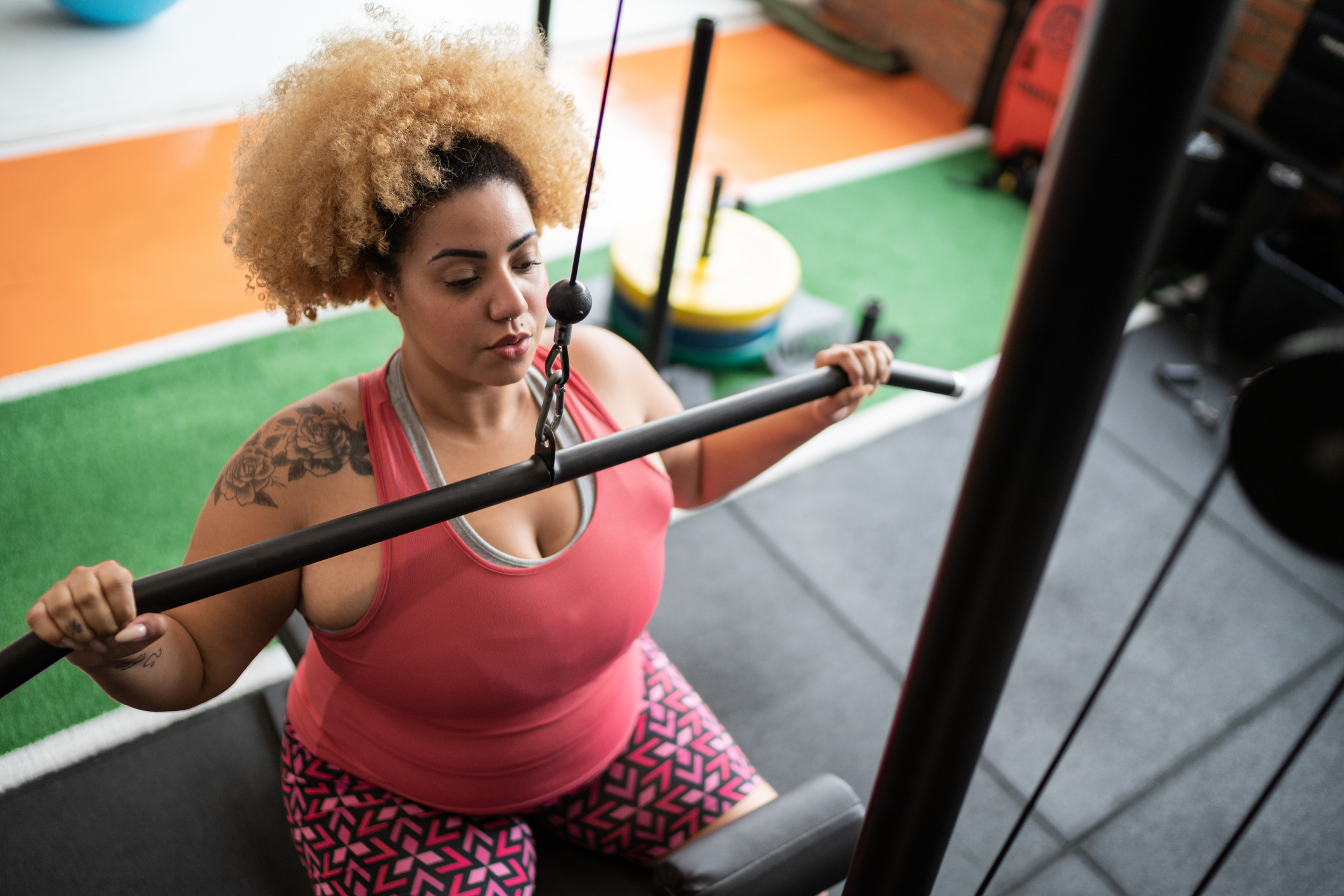This Is How Long You Should Rest Between Sets When Strength Training

Many factors go into creating the best workout for your fitness goals. You probably know it’s important to pick the right amount of weight to lift and follow a certain rep and set scheme. But you should also know how long to rest between sets when you’re strength training.
“Rest is what allows you to recover between bouts of exercise so you can maintain a high level of performance and thereby optimize your results,” explains Trevor Thieme, C.S.C.S. “It’s important to tailor your rest to your goals.”
Follow the recommendations below for how long to rest between sets to get the most out of your resistance training.
How Long to Rest Between Sets to Build Muscle

Weight: 70–80 percent of your 1 rep max (1RM)
Reps: 6–12
Sets: 3–6
Rest between sets: 30–90 seconds
The ideal rest time between sets for hypertrophy (muscle growth) is between 30 and 90 seconds.
“It allows you to sustain a high level of performance while also maintaining high enough levels of mechanical and metabolic stress to optimize muscle growth,” Thieme explains.
How Long to Rest Between Sets to Increase Strength

Weight: 80–90 percent of your 1RM
Reps: 6 or fewer
Sets: 2–6
Rest between sets: 3–5 minutes
The heavier weights you lift (especially during compound lifts like the squat and deadlift), the longer you need to rest to allow your muscles to recover from fatigue. This is because your body uses anaerobic energy systems during these exercises, which can only be done in short bursts and require longer recovery periods between them. But listen to your body.
“Beginner exercisers probably don’t need to rest five minutes,” says ACE-certified personal trainer Chris Gagliardi, C.S.C.S. “That might be better for a competitive weightlifter who will expend so much energy during the sets that they have to make sure they are fully recovered and ready for the next one.”
How Long to Rest Between Sets to Boost Muscular Endurance

Weight: 60–70 percent of your 1RM
Reps: 12 or more
Sets: 2–3
Rest between sets: 30 seconds or less
You can have relatively shorter rest periods when training muscular endurance because you’ll likely be lifting relatively light weights, Gagliardi explains. And since you’re training your muscles to work longer durations when you’re targeting endurance, moving quickly between sets will help with that.
How Long to Rest Between Sets to Lose Weight

Weight: 70–80 percent of your 1RM
Reps: 6–12
Sets: 3–6
Rest between sets: 30–90 seconds
How long to rest between sets for weight loss is the same as how long to rest for muscle growth, Thieme says. The reps and sets are also the same, for two reasons:
“You’ll build more muscle, and you’ll maximize the after-burn effect, which is the sustained increase in your metabolism post-workout as your body recovers,” Thieme explains. Read: You burn more calories, helping spur weight loss.
How Long to Rest Between Sets to Learn Perfect Form for a New Move

Weight: Body weight
Reps: 10 or more
Sets: 2 or more
Rest between sets: 30–90 seconds
If you are new to weightlifting and simply want to focus on perfecting your form to build a solid fitness foundation, skip the iron and begin with just your body weight.
“You want to learn do to the movements properly before adding weight,” Gagliardi says. Although you can rest up to 90 seconds between sets, you may find you’ll need less downtime to recover before the next set, since bodyweight exercises are less intense than weighted ones.
Tips and Suggestions for Resting Between Workout Sets
Here are a few things to keep in mind and some pitfalls to avoid during your workouts.
1. Time yourself
To be sure your rest time between sets is accurate, time yourself using whatever works best for you, Thieme says. That could be your watch, a timer on your phone, or the clock on the wall.
2. Avoid resting too long
Never make your rest intervals so long that your heart rate and body temperature return to your normal resting levels. If you’re adhering to the above rest times and find that this is happening, it’s probably a sign you need to up the intensity of your reps.
3. Make sure you choose the right weight
Speaking of intensity, pay attention to the weight you choose. If you want to build muscle, make sure you can only lift that weight for a maximum of 12 reps. Don’t pick a weight you could lift for 15 reps, but only do 12 reps, Gagliardi says.
Otherwise you won’t be pushing yourself as hard as you can go, making the road to your goals much longer.
4. Recover adequately
“This is hard for some people, because they want to be intense all the time,” Gagliardi says. “But you don’t want your exercise to suffer because you’re not recovered between [workouts].” Keep in mind that muscle and strength gains happen between workouts, not during them.
5. Consider active rest
“If your goal is muscular endurance or weight loss, remaining active between sets can help you build more endurance and burn more calories,” Thieme says. Do this by performing an exercise that targets “noncompeting” muscles during the rest period of your primary exercise (e.g., by jumping rope between sets of bench press).
